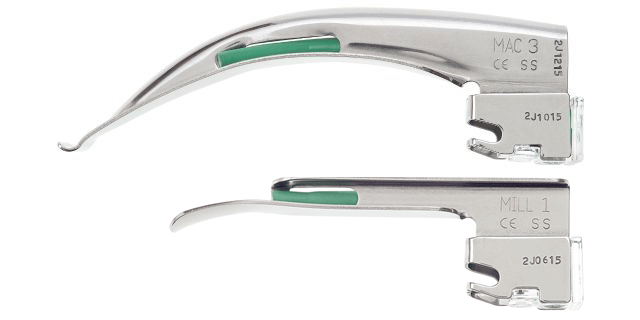Multiple Myeloma : All you need to know

A type of white blood cell called a plasma cell can develop the cancer multiple myeloma. To help your body fight diseases, healthy plasma cells create antibodies that bind to and kill microorganisms. In multiple myeloma, cancerous plasma cells accumulate and drive out healthy blood cells in the bone marrow.
Cancer cells produce abnormal proteins that may cause problems rather than produce helpful antibodies. The blood malignancy of multiple myeloma is one of these. Your bone marrow, the pliable substance found inside bones, is where it begins. Your body produces blood cells here, including a particular type known as plasma cells. Below mentioned are the causes, symptoms, and treatment for multiple myeloma:
What is Multiple Myeloma?
When cells transform (mutate) and proliferate uncontrollably, cancer develops. A tumour is a lump or mass that develops when the altered (abnormal) cells continue to grow. Additionally, neighbouring locations can become infiltrated by cancer cells.
They can also spread to different bodily sections. The components of your immune system are plasma cells. Immunoglobulins, or antibodies, are generally made by them to help fight infections. The soft inside of some bones, called the bone marrow, is where all the various blood cells are created.
The aberrant plasma cells multiply out of control in multiple myeloma. Myeloma cells are the name for these cells. They assemble in the bone marrow and displace healthy blood cells. They are capable of developing plasmacytomas, which are bone cancers. They harm and deteriorate the bone. Some individuals only have one bone tumour. A solitary or isolated plasmacytoma is what this is. People are more likely to have tumours in several different bones. Multiple myeloma is what it is.
Causes of Multiple Myeloma
Multiple myeloma has an undetermined origin. However, it manifests as an aberrant proliferation of plasma cells in the bone marrow that disseminate to various body regions. In the middle of the majority of your bones, in the soft, blood-producing tissue known as bone marrow, myeloma is known to start with one aberrant plasma cell. Cancer cells build up over time, eventually outnumbering the generation of healthy cells since they do not mature and subsequently die, as do normal cells.
Myeloma cells crowd out healthy blood cells in the bone marrow, causing exhaustion and a lack of ability to fight infections. As healthy plasma cells do, myeloma cells keep trying to create antibodies but instead produce aberrant antibodies that the body cannot utilize. Instead, the unusual antibodies accumulate in the body and lead to issues, including kidney damage. Bone damage brought on by cancer cells raises the possibility of shattered bones.
Diagnosis
Your doctor could advise you to get tested if you experience conditions like low blood count, hypocalcaemia, or renal issues, which are also signs of multiple myeloma. You can submit to several tests to verify a multiple myeloma diagnosis. A blood or urine test is the most common method for identifying multiple myeloma. It assists in determining the various cell types in your blood and performs a kidney function test.
Symptoms
Initially, multiple myeloma frequently has no symptoms. When it does, the symptoms vary on the tumour’s location or the issues it creates. In the bone marrow, myeloma cells can accumulate and displace healthy cells. This may lead to the following:
- Weakness, exhaustion, or shortness of breath as a result of inadequate red blood cell production
- Recurring infections brought on by a deficiency in white blood cells
- Easy bleeding or bruising due to low platelet count
- Anemia, bone damage, weakness, and exhaustion
- Weight loss
- Nausea and loss of appetite
- Renal failure
- Perplexity
Treatment of Multiple Myeloma
Some treatments can lessen the discomfort and side effects and slow the disease’s spread. Your doctor may decide to observe you rather than administer the treatment since you don’t have any symptoms. Here are some of the therapeutic choices available to you if your multiple myeloma is advanced:
· Immunomodulatory medications:
These medications are the mainstays of multiple myeloma therapy. Your immune system is affected by them. While others block the signals that tell cancer cells to increase to kill myeloma cells, some immune cells turn on specific immune cells.
· Proteasome inhibitors:
Proteasomes are protein complexes that aid in removing outdated proteins from cells, particularly cancer cells, to make room for fresher ones. Cancer cells are prevented from doing so by proteasome inhibitors. The cancer cells degrade and eventually die as a result.
· Steroids:
All phases of the disease are treated with these medications. High concentrations can kill multiple myeloma cells. By preventing white blood cells from hastily travelling to damage locations, they are also utilized to alleviate sensations like pain and pressure.
· Radiation:
High-energy particles or rays are used in this therapy to harm cancer cells and stop their growth. It enters your body by a machine that emits high-energy rays.
· Immunotherapy:
Your immune system is used in this to combat cancer cells. In chimeric antigen receptor (CAR) T-cell therapy, immunological T cells have modified their genes to enable them to adhere to cancer cells.
· Corticosteroids:
These drugs improve the effectiveness and efficiency of other treatments. Your doctor may recommend dexamethasone or prednisone to aid with side effects if you are undergoing chemotherapy.
· Stem cell transplant:
Healthy stem cells will either be taken from your body during a stem cell transplant or from a healthy donor or kept. Your whole bone marrow, including the disease-causing aberrant plasma cell, will be killed during chemotherapy.
Multiple myeloma Treatment in India:
India is a popular destination for medical tourists, especially for its top-notch cancer treatment centres. Hospitals offer a wide variety of treatments and services at reasonable costs. Due to advanced technology, the nation also provides standardized medical services and top-notch medical care.
Indian hospitals offer effective treatment option for multiple myeloma and the multiple myeloma treatment cost in India is low and affordable when compared to other developed countries like the USA and UK.
Final thoughts:
Hematologist-oncologists are medical professionals focused on blood cancer who have dedicated their lives to studying more about what they do and developing more effective medications. You should visit the doctor in the earlier stage to avoid complications. You can compare several hospitals and select the best one for your treatment.
| You may also read : The Relationship between Men’s Health and Olive Oil |





